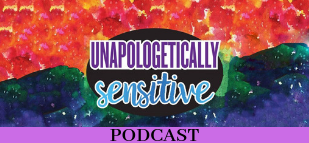I talk about the challenges and complexities of friendships for neurodivergent folks, and the changing nature of friendships, the importance of reciprocity and communication. I discuss navigating difficult conversations, recognizing and addressing needs, and setting boundaries. I talk about the tendency to feel central in someone’s life, and the challenges of accepting neurodivergence in relationships. I explore the importance of self-awareness, authenticity, and honoring one’s own needs in relationships.
HIGHLIGHTS
Takeaways
- Not all friendships are meant to last forever, and it’s important to recognize that friendships come and go.
- Communication and reciprocity are key in maintaining healthy relationships.
- Navigating difficult conversations and setting boundaries is essential for personal growth and maintaining healthy relationships.
- Recognizing and honoring one’s own needs is crucial in navigating relationships.
- Understanding and accepting neurodivergence in relationships can be challenging but necessary for fostering understanding and connection.
Other Insights:
- Insights on building relationships based on emotional intelligence.
- Strategies for holding space for feelings in friendships.
- Importance of rupture and repair in relationships.
- The significance of taking space in challenging relationships.
- Communication dynamics in maintaining connections.
- Evaluation of relationship importance in personal growth.
- Practices for healing and growth within relationships.
- Challenges faced by neurodivergent individuals in friendships.
- Strategies for navigating friendship complexities.
- Understanding the impact of neurodiversity on relationships.
- Coping mechanisms like rage writing for emotional processing.
- Recognition that not all friendships are lifelong.
- Quick connection and oversharing tendencies in relationships.
- Awareness of assumptions about closeness in friendships.
- Identifying personal values in seeking friendships.
- Reflection on reasons for leaving relationships.
- Difficulties in maintaining friendships for neurodivergent individuals.
- Exploration of evolving friendships with neurodivergent needs.
- Insights into the dynamics of neurodivergent friendships.
- Understanding the complexities of neurodiversity in relationships.
Chapters (please adjust for the addition of the introduction)
00:00 Introduction and Setting the Stage
00:55 Challenges in Making and Keeping Friendships
02:02 The Changing Nature of Friendships
03:35 Reciprocity and Communication in Relationships
04:58 Recognizing the Lack of Reciprocity
05:58 Testing Relationships and Making Assumptions
06:56 Navigating Difficult Conversations
08:05 Recognizing and Addressing Needs in Relationships
09:21 Dealing with Resentment and Setting Boundaries
10:24 Navigating Relationships During Tragedy
11:44 Feeling Central in Someone’s Life
12:41 Recognizing Support Systems in Relationships
13:40 Navigating Relationships with Different Perspectives
16:00 Missteps and Room for Growth in Relationships
17:21 Challenges in Accepting Neurodivergence in Relationships
18:52 Understanding the Nuances of Autism and ADHD
20:16 Navigating Relationships with Limited Understanding
21:43 Setting Boundaries and Ending Relationships
23:13 Processing Grief and Emotions in Relationships
24:21 Having Vulnerable Conversations with Loved Ones
25:46 Navigating Emotional Needs and Connection
27:30 Recognizing and Honoring Personal Needs
29:32 Navigating Decision-Making and Overwhelm
31:30 Communicating Needs and Boundaries in Relationships
33:34 Navigating Overwhelm and Self-Judgment
35:19 Summary and Closing Remarks
PODCAST HOST
Patricia was a Licensed Clinical Social Worker for over 17 years, but she is now exclusively providing coaching. She knows what it’s like to feel like an outcast, misfit, and truthteller. Learning about the trait of being a Highly Sensitive Person (HSP), then learning she is AuDHD with a PDA profile and RSD, helped Patricia rewrite her history with a deeper understanding, appreciation, and a sense of self-compassion. She created the podcast Unapologetically Sensitive to help other neurodivergent folks know that they aren’t alone, and that having a brain that is wired differently comes with amazing gifts, and some challenges. Patricia works online globally working individually with people, and she teaches Online Courses for neurodivergent folks that focus on understanding what it means to be a sensitive neurodivergent. Topics covered include: self-care, self-compassion, boundaries, perfectionism, mindfulness, communication, and creating a lifestyle that honors you
LINKS
HSP Online Course–https://unapologeticallysensitive.com/hsp-online-groups/
Online HSP Course Materials (no group included) https://patriciayounglcsw.com/product-category/hsp-classes/
Receive the top 10 most downloaded episodes of the podcast– https://www.subscribepage.com/e6z6e6
Sign up for the Newsletter– https://www.subscribepage.com/y0l7d4
To write a review in itunes:
- click on this link https://itunes.apple.com/us/podcast/unapologetically-sensitive/id1440433481?mt=2
- select “listen on Apple Podcasts”
- chose “open in itunes”
- choose “ratings and reviews”
- click to rate the number of starts
- click “write a review”
Website–www.unapologeticallysensitive.com
Facebook– https://www.facebook.com/Unapologetically-Sensitive-2296688923985657/
Closed/Private Facebook group Unapologetically Sensitive– https://www.facebook.com/groups/2099705880047619/
Instagram– https://www.instagram.com/unapologeticallysensitive/
Youtube– https://www.youtube.com/channel/UCOE6fodj7RBdO3Iw0NrAllg/videos?view_as=subscriber
Tik Tok–https://www.tiktok.com/@unapologeticallysensitiv
e-mail– unapologeticallysensitive@gmail.com
Show hashtag–#unapologeticallysensitive
Music– Gravel Dance by Andy Robinson www.andyrobinson.com

